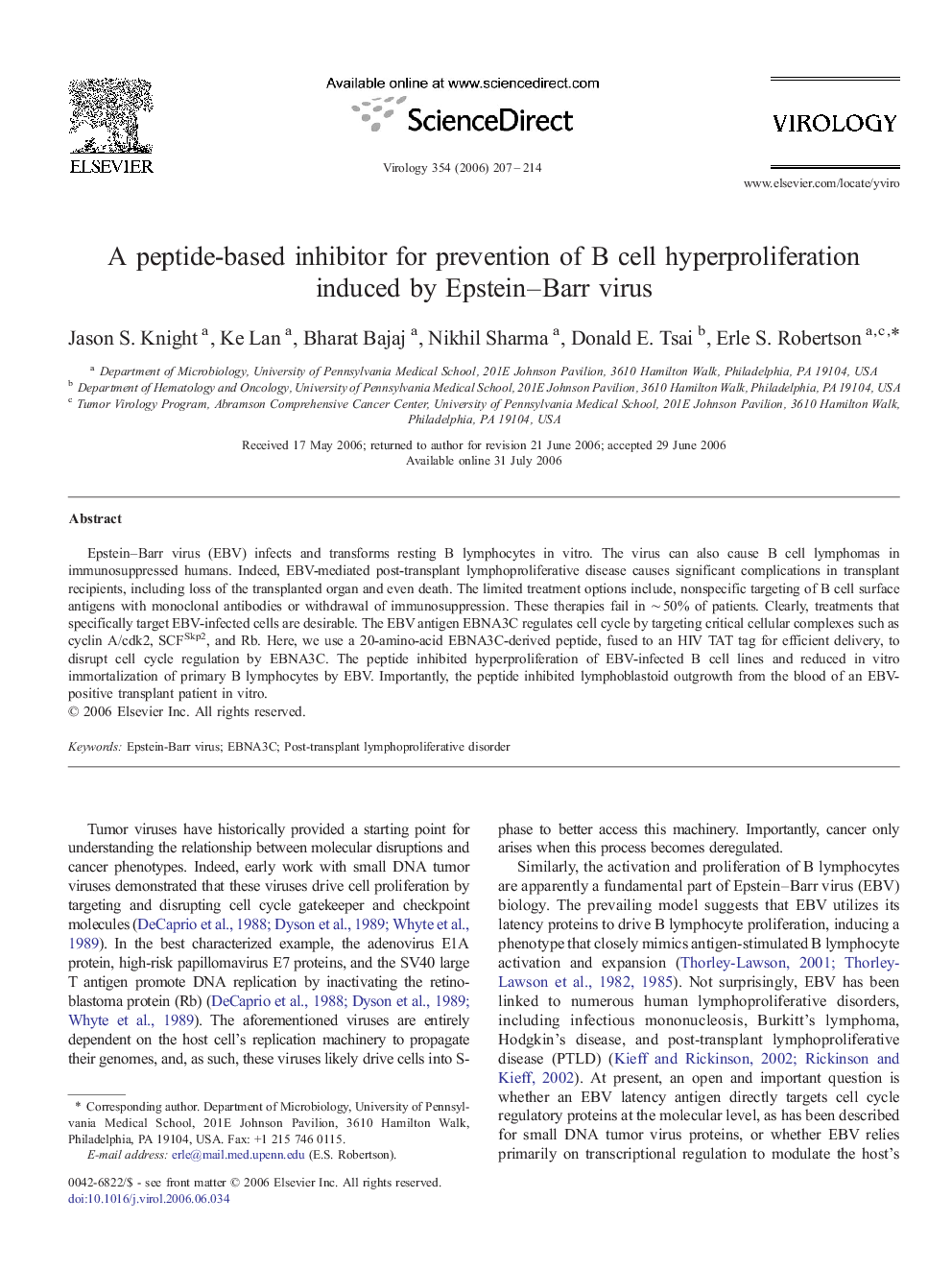| کد مقاله | کد نشریه | سال انتشار | مقاله انگلیسی | نسخه تمام متن |
|---|---|---|---|---|
| 3427212 | 1227372 | 2006 | 8 صفحه PDF | دانلود رایگان |

Epstein–Barr virus (EBV) infects and transforms resting B lymphocytes in vitro. The virus can also cause B cell lymphomas in immunosuppressed humans. Indeed, EBV-mediated post-transplant lymphoproliferative disease causes significant complications in transplant recipients, including loss of the transplanted organ and even death. The limited treatment options include, nonspecific targeting of B cell surface antigens with monoclonal antibodies or withdrawal of immunosuppression. These therapies fail in ∼ 50% of patients. Clearly, treatments that specifically target EBV-infected cells are desirable. The EBV antigen EBNA3C regulates cell cycle by targeting critical cellular complexes such as cyclin A/cdk2, SCFSkp2, and Rb. Here, we use a 20-amino-acid EBNA3C-derived peptide, fused to an HIV TAT tag for efficient delivery, to disrupt cell cycle regulation by EBNA3C. The peptide inhibited hyperproliferation of EBV-infected B cell lines and reduced in vitro immortalization of primary B lymphocytes by EBV. Importantly, the peptide inhibited lymphoblastoid outgrowth from the blood of an EBV-positive transplant patient in vitro.
Journal: Virology - Volume 354, Issue 1, 10 October 2006, Pages 207–214